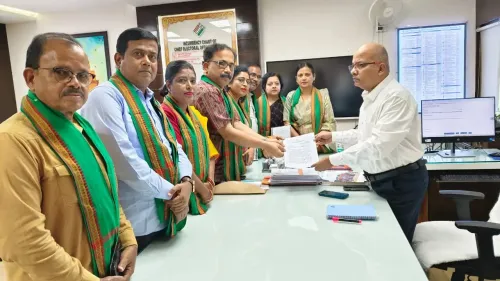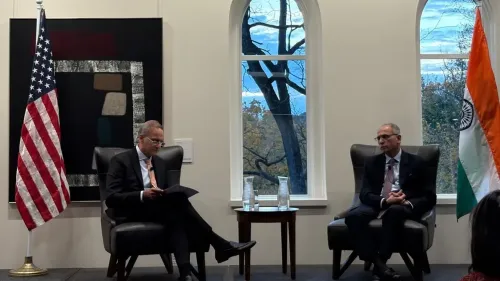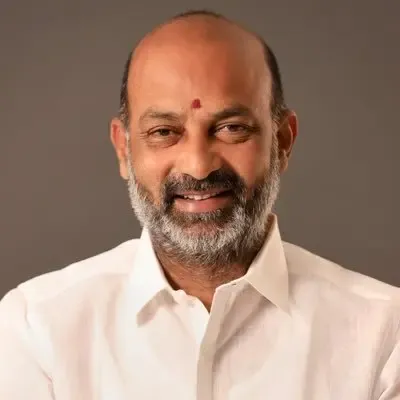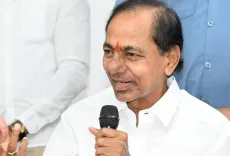How is India Leading the Charge in Merging Economic Growth with Environmental Sustainability?
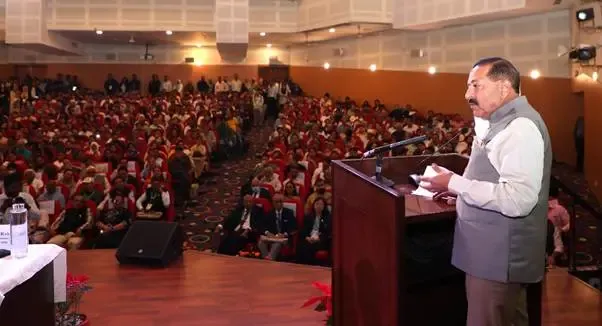
Synopsis
Key Takeaways
- India is a global leader in linking economic growth with environmental sustainability.
- The vision includes achieving a net-zero target by 2070.
- Public participation is essential for the success of sustainability initiatives.
- Urbanisation presents significant challenges that require careful planning.
- Waste-to-wealth technologies can transform waste management.
New Delhi, Nov 6 (NationPress) India has stepped up as a global leader in integrating economic growth with environmental sustainability, inspired by Prime Minister Narendra Modi's vision to reach a net-zero target by 2070 and promote a lifestyle harmonious with nature through the LiFE - Lifestyle for Environment initiative, Union Minister Jitendra Singh stated on Thursday.
In his inaugural speech at the Asian Conference on Geography (ACG 2025) held at Jamia Millia Islamia, the Union Minister of State (Independent Charge) for Science and Technology pointed out that this conference is both timely and significant as it tackles three interconnected issues - climate change, urbanisation, and sustainable resource management, which together shape the sustainability of our collective future.
The minister praised Jamia Millia Islamia for hosting the inaugural edition of this esteemed conference in India and commended Vice Chancellor Prof. Mazhar Ali and the organizing team for uniting international experts, academics, and students to discuss these pressing global challenges.
He noted that Asia is at the heart of global transformation, showcasing remarkable industrial and economic dynamism, yet contributing to over half of the world's greenhouse gas emissions.
Citing the IPCC Sixth Assessment Report, he warned that the region is increasingly susceptible to extreme weather events, including heatwaves, floods, and water scarcity, if emissions continue unabated.
The minister emphasized that South Asia alone is home to over 750 million individuals facing severe climate threats, ranging from melting Himalayan glaciers to coastal flooding and urban heat islands, highlighting that cities like Delhi, Dhaka, Bangkok, and Manila are among the most vulnerable megacities projected by 2050.
Dr. Singh remarked that urbanisation, while representing progress, has also posed significant challenges due to unplanned growth, encroachment on floodplains, depletion of groundwater resources, and escalating pollution.
Using the 2014 Srinagar floods as a case study, he pointed out that such disasters result not only from natural causes but are often exacerbated by human negligence and inadequate planning. He cited alarming data: nearly 80% of wastewater in developing Asian nations is released untreated, and urban India produces over 55 million tonnes of solid waste yearly, increasing by 5% annually.
The minister further emphasized that waste-to-wealth technologies and circular economy initiatives are vital for the future, where the concept of “waste” will become obsolete. Sharing examples from Dehradun, he mentioned successful programs like used cooking oil recycling, which not only supports environmental objectives but also generates community income.
He stressed that no government action can succeed without public involvement, asserting that “without a social movement, no amount of policy or conference can yield optimal outcomes.”


